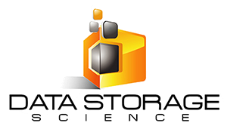The Assessment: Our client, a US building materials distributor, wanted to update its CRM system, which was hosted on server systems in a data center, to a hosted SaaS solution. One benefit of this transition to SaaS is that the client would experience a drastic reduction in required server infrastructure. To accommodate the new workloads to make the transition to the SaaS version, the CRM software maker recommended that the client make network changes and expand their server infrastructure.
The DSS Solution: To determine where to build the new systems for the transition phase of the CRM SaaS project, DSS subject matter experts (SMEs) performed a comparative analysis of a hardware build-out versus public cloud infrastructure to assess the workload, cost, and value tradeoffs. For several reasons, including expected cost savings and technology refresh, the client chose to expand its infrastructure using the public cloud option.
DSS identified Microsoft Azure as the product in best alignment with the client’s business goals and implemented the baseline Microsoft Azure cloud build-out. Our work included Azure ExpressRoute provisioning and configuration, VNet provisioning, security standards and implementation, and integration with the data-center-housed infrastructure. Because Azure ExpressRoute provides both security and performance enhancements to the hybrid cloud environment, we selected it to provide dedicated and secure WAN connectivity between the data center environment and the Azure cloud.
We implemented multiple IP subnets within the client’s VNet to provide isolation and enhance security, with one completely isolated subnet and one subnet with limited outbound-only internet accesses from Azure via NAT or data center access through the ExpressRoute to a firewall. Implementing multiple subnets enabled us to create fine-grained control for the client’s manage access from the isolated subnet to the more open subnet for various required services, including Microsoft Active Directory and certain in-house databases used with the CRM software.
We also provided network security group implementation for additional security policy controls and safety measures, thereby defaulting the network to a closed, rather than open, state requiring the explicit authorization of new connectivity. To enable the infrastructure to function in a hybrid mode between the Azure systems and the data center systems, we also implemented network routing rules that provided connectivity for selected functions in both environments for uses such as database access, Active Directory Syncing, off-site data protection to a backup appliance, OS license management, and integrated network systems logging.
Upon completion of the basic Azure setup, we provided a one-day training for the client’s staff to familiarize them with the basic operating principles, mechanisms, and best practices in the Azure environment. DSS SMEs also continue to provide the client with support and assistance for new feature implementation in the hybrid cloud environment.
The DSS Difference: When our client decided to transition its CRM system to a hosted SaaS solution, DSS’s consultative approach provided a true end-to-end solution. Our in-house expertise in the area of infrastructure analysis added significant value throughout the course of the engagement. At the outset, we worked to understand the nature of our client’s needs and developed an elegant solution that addressed all of them. A key aspect of the DSS difference is that the senior personnel who designed the solution are also skilled practitioners who stayed to implement it. We focused on solving the client’s IT dilemma so that they could focus on their main business. To this end, we designed their system with an eventual transition in mind and made sure that our client’s staff was not left to oversee something complex and difficult. Furthermore, our vendor-agnostic approach ensured cost savings since we proposed only the equipment and services that would serve our client’s needs with no unnecessary embellishments.

